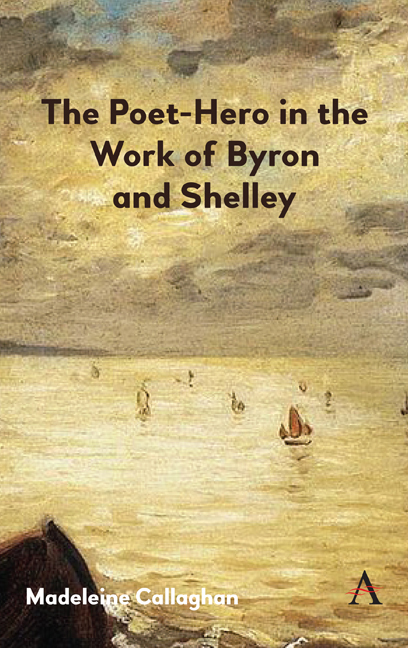Conclusion The Byronic and the Shelleyan Poet-Hero
Published online by Cambridge University Press: 30 March 2019
Summary
Heroism acts as a fertile, dangerous, ultimately enriching principle in Byron and Shelley's poetry and drama, where both poets transform the hero into a poet-hero in their language-obsessed works. Byron and Shelley are self-conscious about assuming the role of or creating a poet-hero. It is around this tension that their poetry converges. Despite both poets possessing different aesthetic sensibilities and poetic preoccupations, across both sections of the book, I show Byron and Shelley to stage the struggle to be heroic in language. Their poet-hero grapples with the ‘reality’ that the poet encounters or creates and the resulting orchestrated conflict becomes the creative principle central to their poetry and drama. Byron and Shelley perform the drama of poetic creation with poetic heroism as the locus of their aspiration and doubt.
The poet-hero, in Byron's mould, communicates ‘the rage and the fury against the inadequacy of his state to his Conceptions’ (BLJ 9: 54) where even as he protests, he endures the state that falls so far short of his imaginative ideal. The image of the defiant and self-damned poet-hero recalls Milton's Satan. ‘By measuring Satan against the heroic standards’, writes Barbara Kiefer Lewalski, ‘we become conscious of the inadequacy and fragility of all the heroic virtues celebrated in literature, of the susceptibility of them all to demonic perversion’. Byron's heroes often hold the treacherous ground between defending and deploring the satanic will, and this suggests, in part, why Robert Southey would label Byron and Shelley as members of ‘the Satanic school’, writing poetry which ‘betrays the wretched feeling of hopelessness wherewith it is allied’. The grounds of Southey's attack, though provoking Byron into rage and a rebuttal in his preface to The Two Foscari, help to suggest the binaries implicit in Byron's use of the satanic will in his version of poetic heroism. But where Milton makes Satan's eloquence a dangerously fallen attribute, Byron enables language to become, on one hand, a vehicle for heroic exploration, and on the other, a force in its own right as the poet-hero attempts to wield language's lightning-like potency. Byron's explorations of language invest in poetry a power that escapes the poet, but this escape is no failure.
- Type
- Chapter
- Information
- The Poet-Hero in the Work of Byron and Shelley , pp. 207 - 212Publisher: Anthem PressPrint publication year: 2019

